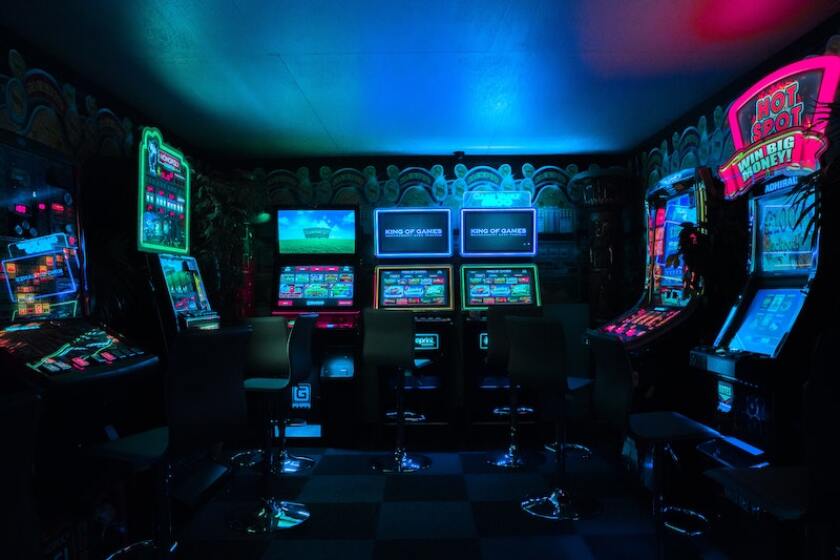Yusuke Murakami and Kei Shirakawa of Mori Hamada & Matsumoto outline opportunities and challenges for investment and financing in the nascent market for gaming and integrated resorts in Japan
On September 4 2019, the Japan Tourism Agency unveiled its draft Basic Policy on developing casino resorts, which will likely accelerate the efforts of local governments to be selected as the first casino resort area in Japan. Hirofumi Yoshimura, the governor of Osaka Prefecture, declared that Osaka will start its local bidding process for casino operators by the end of 2019 and select its operating partner around Spring 2020. Also, Yokohama City, Wakayama Prefecture, Nagasaki Prefecture, and several other local governments have already indicated their interest in hosting casino resorts.
The economic gains for the first casino resorts in Japan are expected to be massive. According to research recently conducted by the Daiwa Institute of Research, the economic effect of the first three casino resorts will be JPY5.1 trillion (approximately $47 billion) at the construction stage and JPY2 trillion annually at the operation stage.
Regulatory framework
The Act to Implement Specified Integrated Resort Areas (the IR Act), enacted in July 2018, legalised casino resorts for the first time in Japan. Based on the IR Act, the final version of the Basic Policy mentioned above will be published within the first half of 2020. There are several important aspects to the regulatory framework for casino resorts contemplated under the IR Act and the Basic Policy.
The IR Act does not envisage the development of casinos on a stand-alone basis. Rather, it only allows for 'integrated resorts' (IR), which should consist of a casino and other tourist facilities. This is because the Japanese central government sees the IR business as a tool to boost inbound tourism for both individuals and businesses. As such, an IR will be a single and united area, consisting of a casino and the following:
(i) Facilities for international meetings and conferences;
(ii) Facilities for exhibitions (together with (i) above: MICE facilities);
(iii) Entertainment facilities for promotion of Japanese culture (for example theatres or museums);
(iv) Gateway facilities for guests (including concierge services for tourists);
(v) Accommodation facilities; and
(vi) Other ancillary facilities that promote the attraction of domestic and foreign tourists.
An IR must contain a casino and all the facilities listed in categories (i) to (v) above (with (vi) being optional), and each must be an independent facility for exclusive use. The casino area is limited to 3% or less of the gross floor area of the whole IR.
The IR operator must be an entity incorporated under the Companies Act of Japan, but foreign investment in the IR operator is not restricted, meaning the IR operator may be wholly owned by foreign investor(s). The IR operator is also effectively required to own all the facilities in the IR and operate them as a united package, and is prohibited from operating any business other than the IR. Therefore, the typical structure of an IR operator would consist of several sponsors (including a casino operator) forming a consortium, which would establish a new single-purpose company for the IR operator, which in turn owns and operates the IR.
The IR operator will generate practically all revenues from the businesses in the IR, but the revenue from the casino facility will be subject to a special fee levied by the government in addition to ordinary taxes, such as corporate tax. An entrance fee of JPY6,000 will be imposed on Japanese residents, and paid to the central government and the host local government. They will also charge a percentage fee equivalent to 30% of the gross gaming revenue.
Process and timeline
To be in a position to develop and operate an IR, a candidate developer/consortium must win multiple bidding rounds and obtain various approvals. These include being selected as the operator partner by the local government in each candidate area; having the area successfully designated by the central government; and obtaining an a casino licence from the special governmental committee.
At the first step, the local government planning to host an IR (such as Osaka or Yokohama) will hold a bidding process to select the IR operator that will team up with the local government and jointly promote the locality as a candidate area for designation by the central government. The local government will announce its implementation policy (jisshi houshin) for the development of an IR in its area at the start of the bidding process. The implementation policy mainly includes: (a) the location, area, and terms of use of the land (including land price or rent); (b) the type, function, and size of the facilities; and (c) the process, criteria and timeline for the bidding for the IR operator.
|
|
A candidate developer/consortium must win multiple bidding rounds and obtain various approvals |
|
|
Second, the central government (particularly, the Ministry of Land, Infrastructure, Transport and Tourism – MLIT) will hold a separate selection process to designate IR areas (IR Area Designation) from among the candidate areas proposed by the local governments. The number of IR Area Designations is limited to three for the first seven years (until 2025). In this second round, the local government, together with the selected IR operator as its partner, will draft an IR development plan (kuiki seibi keikaku) for submission to the MLIT. The IR development plan must include a master business plan (jigyou kihon keikaku) containing: (a) the type, function, and size of the facilities; (b) the schedule until the commencement of operations; (c) maintenance and capital expenditure plan (including cost and schedule); (d) organisational structure of the IR operator; (e) cooperation plan with the local government to improve the IR (including the funding plan); and (f) measures to eliminate the harmful effects of casinos.
Third, after the IR Area Designation is awarded, the IR operator must obtain a licence to operate a casino business from the Casino Management Committee (CMC), an independent committee established within the central government. The CMC will determine whether the planned casino business satisfies various conditions as set out in the IR Act. Among other things, the CMC will conduct stringent and comprehensive background checks, not only on the IR operator's directors but also on the parties that will have predominant influence on the business, including sponsors, service providers, and even financiers.
Once the above is completed, the IR operator will be entitled to develop and operate an IR. The IR operator will then enter into a project agreement (jisshi kyoutei) with the host local government, and develop and operate the IR in accordance with that agreement.
The first IR Area Designation is expected to be awarded in or close to 2022, with the first IR expected to open in about 2025. However, the term of the preferred bidder's licence to develop and operate an IR is not indefinite, as it has an initial validity period of 10 years, subject to renewal every five years. Similarly, a CMC casino licence will be valid for an initial period of three years, subject to renewal every three years.
Challenges for developers
The first challenge for developers will be the long and complicated selection process for IR operators.
As mentioned above, there are three separate rounds, so a developer is at risk of losing all or most of its presumably large upfront investment if it fails in any of these rounds. One might say that taking on such risk is an acceptable prerequisite to enjoy the returns from the IR business in the long term, but at the same time, developers need to mitigate these risks to the extent possible. In all likelihood, developers with different kinds of expertise and resources will have to form a consortium and agree on the most suitable allocation of risks and responsibilities.
In addition, although the process appears highly complicated, it is in many respects similar to PFI/PPP deals, especially concession projects in the privatisation of public infrastructure in Japan – such as airports, roads, water facilities and MICE facilities, where the operator is selected through bidding led by the central or local governments. Hence, the experience and know-how gained in PFI/PPP projects could also be employed in the IR bidding process.
|
|
Taking on such risk is an acceptable prerequisite to enjoy the returns from the IR business |
|
|
After the selection process is completed, there will be challenges at the operation stage as well, especially with the risk of non-renewal. As mentioned above, the IR operator needs to renew the IR Area Designation 10 years after the initial designation and every five years after that, and the CMC casino licence every three years. In particular, the renewal of the IR Area Designation requires the consent of the relevant local assembly where the IR is located, as well as the relevant local public safety (police) commission. Theoretically, in a worst case scenario, casino opponents could win in the local election before the renewal of the IR Area Designation, and the local assembly controlled by such persons could refuse to consent to the renewal of the IR Area Designation. However, from a practical point of view, the initial IR Area Designation would not have been awarded without widespread support from the local community.
Additionally, the draft Basic Policy mentions that the project agreement could provide for a contract term longer than the validity period of the IR Area Designation itself, as well as compensation from the local government to the IR operator for damages for any cause attributable to the local government, including where the local assembly refuses to give its consent. This would deter the local assembly from acting unreasonably.
A final issue is the exit mechanism for developers. Under the IR Act, any person who intends to acquire at least 5% of the voting rights in, or outstanding shares of, an IR operator (including non-voting shares) is required to obtain the approval of the CMC. Depending on the terms agreed with the local government, the project agreement could also have a change-of-control provision, where a change of control of the IR operator would constitute a termination event under the project agreement.
Challenges for financiers
There are some major challenges for lenders to the IR operator.
First, at the development stage, the parties would have to address the risk of failure to secure a CMC casino licence. Once the IR Area Designation has been awarded, the IR operator will start development and construction work on the facilities. At this stage, financiers will have a chance to provide IR operator with bridge loans for the construction phase, or permanent loans covering both construction and operation phases. However, the IR operator would still be in the process of applying for the CMC casino licence, and any delay or failure to obtain the licence would be critical for the lenders. Some sort of sponsor support or guarantee may be requested by the lenders to cover this risk.
|
|
The race for the first casino operator in Japan has begun |
|
|
Like the developers, financiers are also exposed to the risk of non-renewal of the IR Area Designation. As mentioned above, compensation under the project agreement could mitigate this risk. However, if the project agreement does not have this compensation mechanism, some lenders might find it difficult to provide project finance loans with a tenor that is longer than the validity period of the IR Area Designation, unless some sponsor support or guarantee is provided as a credit enhancement.
In the unfortunate event that the IR operator finds itself in default, financiers will face the challenge of effectively arranging the lender step-in and project restructuring. Since the local government is likely to have the right to terminate the project agreement if the IR operator is in default, the financiers' efforts to restructure the project may come to nothing if the local government exercises its termination right.
One possible solution is to execute a direct agreement between the local government and the financiers, which provides for a consultation process between the financiers and the local government to pursue the best way to restructure the project; this path commonly followed in many concession projects. Also, the draft Basic Policy mentions that the project agreement should provide for an appropriate mechanism to pursue the replacement of the IR operator if the incumbent sponsor is considered unable to continue the IR's operation due to poor performance or non-renewal of either the CMC casino licence or the IR Area Designation.
The race is on
The race for the first casino operator in Japan has begun. The regulatory framework will be fully established as soon as early 2020 and local governments and many market participants are already accelerating studies and marketing activities. As mentioned before, there will be challenges for both developers and financiers, but market participants are expected to figure out practical solutions through the process of constructive dialogue with the central and local governments.
The business potential is too big to ignore. Developers and financiers (whether domestic or foreign) should be flexible to meet these challenges and proceed carefully with the support of advisors with strong regulatory and transactional experience.
About the author |
||

|
|
Yusuke Murakami Partner, Mori Hamada & Matsumoto Tokyo, Japan T: +81 3 6266 8704 E: yusuke.murakami@mhm-global.com Yusuke Murakami is a partner at Mori Hamada & Matsumoto. He has extensively advised developers, investors, lenders, and contractors in energy & infrastructure projects, including major PFI/PPP projects, such as airports, toll roads, and port terminals in Japan. Previously seconded to Allen & Overy, London (2012 to 2013), Murakami is also strong in cross-border transactions. Yusuke is a graduate of Harvard Law School (LLM, 2012) and the University of Tokyo (JD, 2006 and LLB, 2004). He has been admitted to the bar in Japan (2007) and New York (2013). He was selected for the 10th edition of Best Lawyers in Japan by Best Lawyers International, and as a next generation lawyer by Legal 500 Asia Pacific in 2019. |
About the author |
||

|
|
Kei Shirakawa Associate, Mori Hamada & Matsumoto Tokyo, Japan T: +81 3 6266 8916 E: kei.shirakawa@mhm-global.com Kei Shirakawa is a senior associate at Mori Hamada & Matsumoto. He advises on a broad range of financing transactions, including energy and infrastructure financing, project financing, and other finance transactions. Among other projects, he has assisted candidate operators and financiers in several high-profile airport concession deals in Japan. Kei is a graduate of Harvard Law School (LLM, 2015) and the University of Tokyo (JD, 2009 and LLB, 2007). He has been admitted to the bar in Japan (2010) and New York (2019). |

